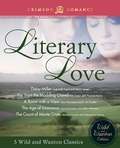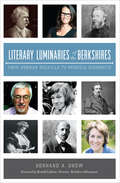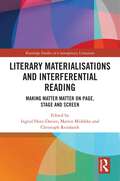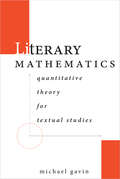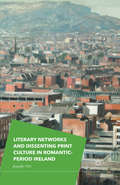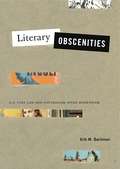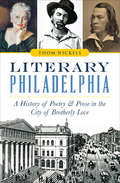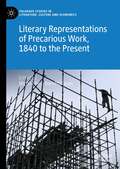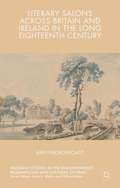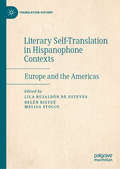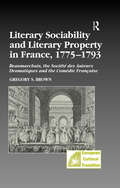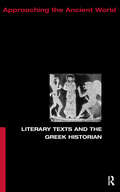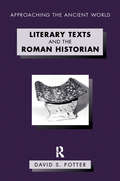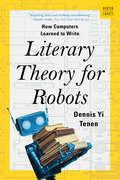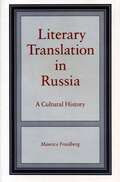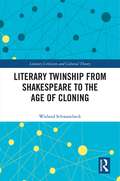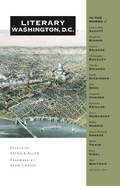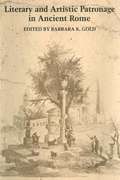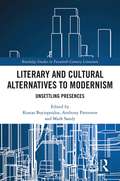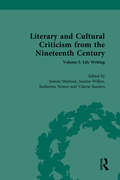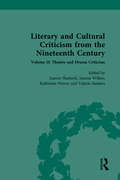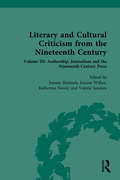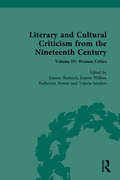- Table View
- List View
Literary Love: 5 Wild and Wanton Classics
by Crimson RomanceClassic literature has never been so sexy! With some modern sensuality sprinkled into these vaunted literary classics, reading the canon is more delectable than ever. <P><P> This digital collection includes spiced-up editions of:<P><P> Daisy Miller by Gabrielle Vigot & Henry James<P> Far from the Madding Crowd by Pan Zador & Thomas Hardy<P> A Room with a View by Coco Rousseau & E. M. Forster<P> The Age of Innocence by Coco Rousseau & Edith Wharton<P> The Count of Monte Cristo by Monica Corwin & Alexandre Dumas.
Literary Love: 5 Wild and Wanton Classics
by Gabrielle VigotClassic literature has never been so sexy! With some modern sensuality sprinkled into these vaunted literary classics, reading the canon is more delectable than ever. This value-priced digital collection includes spiced-up editions of:Daisy Miller by Gabrielle Vigot & Henry JamesFar from the Madding Crowd by Pan Zador & Thomas HardyA Room with a View by Coco Rousseau & E. M. ForsterThe Age of Innocence by Coco Rousseau & Edith WhartonThe Count of Monte Cristo by Monica Corwin & Alexandre Dumas.Sensuality Level: Sensual
Literary Luminaries of the Berkshires: From Herman Melville to Patricia Highsmith
by Bernard A. DrewThe literary history behind this beautiful mountain region. The Massachusetts Berkshires have long been a mecca for literary greats, from Henry Wadsworth Longfellow and Edith Wharton to Sinclair Lewis and Joan Ackermann. The Green River in Great Barrington inspired William Cullen Bryant&’s poetry. Charles Pierce Burton&’s childhood hometown, Adams, became the setting for his frolicking Boys of Bob&’s Hill children&’s books. During an interlude in Lenox, Patricia Highsmith consulted a local undertaker for details to use in The Talented Mr. Ripley. In this book, Bernard A. Drew brings together a fascinating chronicle of some 250 wordsmiths who took inspiration from the hills and valleys of the Berkshires.
Literary Materialisations and Interferential Reading: Making Matter Matter on Page, Stage and Screen (Routledge Studies in Contemporary Literature)
by Martin Middeke Christoph Reinfandt Ingrid Hotz-DaviesThis book traces literature’s long history of repurposing representational language use for performative, “material” effects. It brings this tradition into dialogue with the recent material turn in literary and cultural theory, which seeks to supplant or at least rethink the foundational influence of the linguistic turn in the field. Drawing on a variety of cutting‑edge new‑materialist theories, this book programmatically outlines the contours of a methodology of Interferential Reading that is then brought to bear on examples ranging from Shakespeare, Donne, Keats and Tennyson to Northern Irish poets Colette Bryce and Sinéad Morrissey and Scottish poet Kathleen Jamie; from British thing essays to J. G. Ballard, John Berger, Nicola Barker, Richard Powers, Colum McCann, Tim Crouch, Hanya Yanagihara and Korean writer Han Kang, winner of the 2024 Nobel Prize for literature, and from the history of theatrical bodies to the intermedial as well as affective textures in very recent experimental theatre, live theatre broadcasting and media art.
Literary Mathematics: Quantitative Theory for Textual Studies (Stanford Text Technologies)
by Michael GavinAcross the humanities and social sciences, scholars increasingly use quantitative methods to study textual data. Considered together, this research represents an extraordinary event in the long history of textuality. More or less all at once, the corpus has emerged as a major genre of cultural and scientific knowledge. In Literary Mathematics, Michael Gavin grapples with this development, describing how quantitative methods for the study of textual data offer powerful tools for historical inquiry and sometimes unexpected perspectives on theoretical issues of concern to literary studies. Student-friendly and accessible, the book advances this argument through case studies drawn from the Early English Books Online corpus. Gavin shows how a copublication network of printers and authors reveals an uncannily accurate picture of historical periodization; that a vector-space semantic model parses historical concepts in incredibly fine detail; and that a geospatial analysis of early modern discourse offers a surprising panoramic glimpse into the period's notion of world geography. Across these case studies, Gavin challenges readers to consider why corpus-based methods work so effectively and asks whether the successes of formal modeling ought to inspire humanists to reconsider fundamental theoretical assumptions about textuality and meaning. As Gavin reveals, by embracing the expressive power of mathematics, scholars can add new dimensions to digital humanities research and find new connections with the social sciences.
Literary Networks and Dissenting Print Culture in Romantic-Period Ireland
by Jennifer OrrLiterary Networks and Dissenting Irish Print Culture examines the origins of Irish labouring-class poetry produced in the liminal space of revolutionary Ulster (1790-1815), where religious dissent fostered a unique and distinctive cultural identity.
Literary Obscenities: U.S. Case Law and Naturalism after Modernism (Refiguring Modernism #25)
by Erik M. BachmanThis comparative historical study explores the broad sociocultural factors at play in the relationships among U.S. obscenity laws and literary modernism and naturalism in the early twentieth century. Putting obscenity case law’s crisis of legitimation and modernism’s crisis of representation into dialogue, Erik Bachman shows how obscenity trials and other attempts to suppress allegedly vulgar writing in the United States affected a wide-ranging debate about the power of the printed word to incite emotion and shape behavior.Far from seeking simply to transgress cultural norms or sexual boundaries, Bachman argues, proscribed authors such as Wyndham Lewis, Erskine Caldwell, Lillian Smith, and James T. Farrell refigured the capacity of writing to evoke the obscene so that readers might become aware of the social processes by which they were being turned into mass consumers, voyeurs, and racialized subjects. Through such efforts, these writers participated in debates about the libidinal efficacy of language with a range of contemporaries, from behavioral psychologists and advertising executives to book cover illustrators, magazine publishers, civil rights activists, and judges.Focusing on case law and the social circumstances informing it, Literary Obscenities provides an alternative conceptual framework for understanding obscenity’s subjugation of human bodies, desires, and identities to abstract social forces. It will appeal especially to scholars of American literature, American studies, and U.S. legal history.
Literary Philadelphia: A History of Poetry & Prose in the City of Brotherly Love
by Thom Nickels&“Peppered with many . . . unexpected literary treasures . . . A wonderful introduction to/overview of [Philadelphia&’s] abundant literary heritage&” (Philly.com). Since Thomas Paine and Benjamin Franklin put type to printing press, Philadelphia has been a haven and an inspiration for writers. Local essayist Agnes Repplier once shared a glass of whiskey with Walt Whitman, who frequently strolled Market Street. Gothic writers like Edgar Allan Poe and George Lippard plumbed the city&’s dark streets for material. In the twentieth century, Northern Liberties native John McIntyre found a backdrop for his gritty noir in the working-class neighborhoods, while novelist Pearl S. Buck discovered a creative sanctuary in Center City. From Quaker novelist Charles Brockden Brown to 1973 US poet laureate Daniel Hoffman, author Thom Nickels explores Philadelphia&’s literary landscape. Includes photos
Literary Representations of Precarious Work, 1840 to the Present (Palgrave Studies in Literature, Culture and Economics)
by Michiel Rys Bart PhilipsenLiterary Representations of Precarious Work, 1840 to the Present sheds new light on literary representations of precarious labor from 1840 until the present. With contributions by experts in American, British, French, German and Swedish culture, this book examines how literature has shaped the understanding of socio-economic precarity, a concept that is mostly used to describe living and working conditions in our contemporary neoliberal and platform economy. This volume shows that authors tried to develop new poetic tools and literary techniques to translate the experience of social regression and insecurity to readers. While some authors critically engage with normative models of work by zooming in on the physical and affective backlash of being a precarious worker, others even find inspiration in their own situations as writers trying to survive. Furthermore, this volume shows that precarity is not an exclusively contemporary phenomenon and that literature has always been a central medium to (critically) register forms of social insecurity. By retrieving parts of that archive, this volume paves the way to a historically nuanced view on contemporary regimes of precarious work.
Literary Salons Across Britain and Ireland in the Long Eighteenth Century (Palgrave Studies in the Enlightenment, Romanticism and Cultures of Print)
by Amy PrendergastThe eighteenth-century salon played an important role in shaping literary culture, while both creating and sustaining transnational intellectual networks. Focusing on archival materials, this book is the first detailed examination of the literary salon in Ireland, considered in the wider contexts of contemporary salon culture in Britain and France.
Literary Self-Translation in Hispanophone Contexts - La autotraducción literaria en contextos de habla hispana: Europe and the Americas - Europa y América (Translation History)
by Lila Bujaldón de Esteves Belén Bistué Melisa StoccoThis edited book contributes to the growing field of self-translation studies by exploring the diversity of roles the practice has in Spanish-speaking contexts of production on both sides of the Atlantic. Part I surveys the presence of self-translation in contemporary Indigenous literatures in Spanish America, with a focus on Mexico and the Mapuche poetry of Chile and Argentina. Part II proposes to incorporate self-translation into the history of Spanish-American literatures- including its relation with colonial multilingual-translation practices, the transfers it allowed between the French and Spanish-American avant-gardes, and the insertion it offered for exiled Republicans in Mexico. Part III develops new reflections on the Iberian realm: on the choice between self and allograph translation Basque writers must face, a new category in Xosé Dasilva’s typology, based on the Galician context, and the need to expand the analysis of directionality in Catalan self-translations. This book brings together contributions from some of the leading international experts in translation and self-translation, and it will be of interest to scholars and students in the fields of Translation Studies, Cultural Studies, Comparative Literature, Spanish Literature, Spanish American and Latin American Literature, and Amerindian Literatures.
Literary Sociability and Literary Property in France, 1775–1793: Beaumarchais, the Société des Auteurs Dramatiques and the Comédie Française (Studies in European Cultural Transition)
by Gregory S. BrownThe first full-length, scholarly study of the Société des auteurs dramatiques (SAD), this book describes the form, the meaning, the achievements, and the failures of the first professional association for creative writers in European history. Founded by the well-known playwright Pierre-Augustin Caron de Beaumarchais in 1777 under the protection of prominent aristocrats at the court of King Louis XVI, the SAD comprised the playwrights most closely associated with the royal theater of the kingdom, the Comédie Française. Its two dozen members discussed and worked to advance both their collective interests under the royal theater regulations (which governed such issues of literary property, creative control, and remuneration) and to promote their public image as playwrights and men of letters more broadly - while at the same time competing with each other, sometimes intensely, for control over that image. Gregory Brown traces the story of the SAD from its conception in the mid-1770s through to the French Revolution, exploring first the Society's founding in 1777, then its trajectory until its dissolution at the end of 1780, and finally discusses a revival of the group during the Revolution. In each chapter, Brown analyzes the strategic efforts of Beaumarchais and his associates, to shape regulations and legislation concerning droits d'auteur (authorial remuneration and literary property) and their efforts to reshape the public status and identity of playwrights through correspondence, print and face-to-face encounters with the troupe of the Comédie Française, the theater's aristocratic supervisors at court, its lawyers and government administrators, its commercial publics, and other, authors. Brown argues against previous treatments of the SAD, which have presented it as a spontaneous, dissident challenge to constituted social and political authority under the Old Regime. He demonstrates instead how the SAD emerged from within existing lines of authority in e
Literary Texts and the Greek Historian (Approaching the Ancient World)
by Christopher PellingFirst published in 1999. Routledge is an imprint of Taylor & Francis, an informa company.
Literary Texts and the Roman Historian (Approaching the Ancient World)
by David PotterLiterary Texts and the Roman Historian looks at literary texts from the Roman Empire which depict actual events. It examines the ways in which these texts were created, disseminated and read.Beside covering the major Roman historical authors such as Livy and Tacitus, he also considers the contributions of authors in other genres like:* Cicero* Lucian* Aulus Gellius.Literary Texts and the Roman Historian provides an accessible and concise introduction to the complexities of Roman historiography.
Literary Theory for Robots: How Computers Learned to Write (A Norton Short #0)
by Dennis Yi Tenen“Surprising, funny and resolutely unintimidating.” —Jennifer Szalai, New York Times Book Review In the industrial age, automation came for the shoemaker and the seamstress. Today, it has come for the writer, physician, programmer, and attorney. Literary Theory for Robots reveals the hidden history of modern machine intelligence, taking readers on a spellbinding journey from medieval Arabic philosophy to visions of a universal language, past Hollywood fiction factories and missile defense systems trained on Russian folktales. In this provocative reflection on the shared pasts of literature and computer science, former Microsoft engineer and professor of comparative literature Dennis Yi Tenen provides crucial context for recent developments in AI, which holds important lessons for the future of humans living with smart technology. Intelligence expressed through technology should not be mistaken for a magical genie, capable of self-directed thought or action. Rather, in highly original and effervescent prose with a generous dose of wit, Yi Tenen asks us to read past the artifice—to better perceive the mechanics of collaborative work. Something as simple as a spell-checker or a grammar-correction tool, embedded in every word-processor, represents the culmination of a shared human effort, spanning centuries. Smart tools, like dictionaries and grammar books, have always accompanied the act of writing, thinking, and communicating. That these paper machines are now automated does not bring them to life. Nor can we cede agency over the creative process. With its masterful blend of history, technology, and philosophy, Yi Tenen’s work ultimately urges us to view AI as a matter of labor history, celebrating the long-standing cooperation between authors and engineers.
Literary Translation in Russia: A Cultural History (G - Reference, Information and Interdisciplinary Subjects)
by Maurice FriedbergIn this rich historical study, Maurice Friedberg recounts the impact of translation on the Russian literary process. In tracing the explosion of literary translation in nineteenth-century Russia, Friedberg determines that it introduced new issues of cultural, aesthetic, and political values.Beginning with Pushkin in the early nineteenth century, Friedberg traces the history of translation throughout the lives of Dostoevsky, Tolstoy, and, more recently, Pasternak. His analysis includes two translators who became Russia's leading literary figures: Zhukovsky, whose renditions of German poetry became famous, and Vvedensky, who introduced Charles Dickens to Russia. In the twentieth century, Friedberg points to Pasternak's Faust to show how apolitical authors welcomed free translation, which offered them an alternative to the original writing from which they had been banned by Soviet authorities.By introducing Western literary works, Russian translators provided new models for Russian literature. Friedberg discusses the usual battles fought between partisans of literalism and of free translation, the influence of Stalinist Soviet government on literary translation, and the political implications of aesthetic clashes. He also considers the impetus of translated Western fiction, poetry, and drama as remaining links to Western civilization during the decades of Russia's isolation from the West. Friedberg argues that literary translation had a profound effect on Russia by helping to erode the Soviet Union's isolation, which ultimately came to an end with the dissolution of the Soviet Union in 1991.
Literary Twinship from Shakespeare to the Age of Cloning (Literary Criticism and Cultural Theory)
by Wieland SchwanebeckUnlike previous efforts that have only addressed literary twinship as a footnote to the doppelganger motif, this book makes a case for the complexity of literary twinship across the literary spectrum. It shows how twins have been instrumental to the formation of comedies of mistaken identity, the detective genre, and dystopian science fiction. The individual chapters trace the development of the category of twinship over time, demonstrating how the twin was repeatedly (re-)invented as a cultural and pathological type when other discursive fields constituted themselves, and how its literary treatment served as the battleground for ideological disputes: by setting the stage for debates regarding kinship and reproduction, or by partaking in discussions of criminality, eugenic greatness, and ‘monstrous births’. The book addresses nearly 100 primary texts, including works of Mary Elizabeth Braddon, Wilkie Collins, Charles Dickens, Arthur Conan Doyle, Aldous Huxley, Christopher Priest, William Shakespeare, and Zadie Smith.
Literary Washington, D.C.
by Alan Cheuse Patrick AllenThe public face of Washington-the gridiron of L'Enfant's avenues, the buttoned-down demeanor Sloan Wilson's archetypal "Man in the Grey Flannel Suit," the monumental buildings of the Triangle-rarely gives up the secrets of this city's rich life. But, beneath the surface there are countless stories to be told. From the early swamp days to the Civil War, the "gilded age" to the New Deal and McCarthy eras, as the center of world power to its underlying multicultural social fabric, Washington is a writer's town.While this is surprising to some, it is not news to the close observer. Alan Cheuse, in his foreword to Literary Washington, D.C. comments: "Part of this peculiar city's sense of place is that it serves as a capital for people who have no permanent sense of place. . . . War has brought us here, peace has brought us here, love has kept us here, and love or loss of love will give some of us reason to leave again. Which makes Washington, D.C. exactly like most other places in the rest of the country and the rest of the world-only more so."In fact, D.C. has been a magnet for great writers for centuries. Including novelists, poets, journalists, essayists, and politicians and patriots, finally, in Literary Washington D.C., the story of the capital of world power is finally told.
Literary Washington, D.C.
by Alan Cheuse Patrick AllenThe public face of Washington-the gridiron of L'Enfant's avenues, the buttoned-down demeanor Sloan Wilson's archetypal "Man in the Grey Flannel Suit," the monumental buildings of the Triangle-rarely gives up the secrets of this city's rich life. But, beneath the surface there are countless stories to be told. From the early swamp days to the Civil War, the "gilded age" to the New Deal and McCarthy eras, as the center of world power to its underlying multicultural social fabric, Washington is a writer's town.While this is surprising to some, it is not news to the close observer. Alan Cheuse, in his foreword to Literary Washington, D.C. comments: "Part of this peculiar city's sense of place is that it serves as a capital for people who have no permanent sense of place. . . . War has brought us here, peace has brought us here, love has kept us here, and love or loss of love will give some of us reason to leave again. Which makes Washington, D.C. exactly like most other places in the rest of the country and the rest of the world-only more so."In fact, D.C. has been a magnet for great writers for centuries. Including novelists, poets, journalists, essayists, and politicians and patriots, finally, in Literary Washington D.C., the story of the capital of world power is finally told.
Literary and Artistic Patronage in Ancient Rome
by Barbara K. GoldVirgil, Horace, Catullus, Propertius--these are just a few of the poets whose work we would be without today were it not for the wealthy and powerful patrons upon whose support the Roman cultural establishment so greatly depended. Who were these patrons? What benefits did they give, to whom, and why? What effect did the support of such men as Maecenas and Pompey have on the lives and work of those who looked to them for aid? These questions and others are addressed in this volume, which explores all the important aspects of patronage--a topic crucial to the study of literature and art from Homer to the present day. The subject is approached from various vantage points: literary, artistic, historical. The essayists reach conclusions that dispel the many misconceptions about Roman patronage derived from seventeenth- and eighteenth-century models in England and Europe. An understanding of the workings of patronage is indispensable in helping us see how the Roman cultural establishment functioned in the four centuries of its flourishing and also in helping us read and enjoy specific poems and works of art. A book for all concerned with classical literature, art, and social history, Literary and Artistic Patronage in Ancient Rome not only deepens our understanding of the ancient world but also suggests important avenues for future exploration. Virgil, Horace, Catullus, Propertius--these are just a few of the poets whose work we would be without today were it not for the wealthy and powerful patrons upon whose support the Roman cultural establishment so greatly depended. Who were these patrons? What benefits did they give, to whom, and why? What effect did the support of such men as Maecenas and Pompey have on the lives and work of those who looked to them for aid? These questions and others are addressed in this volume, which explores all the important aspects of patronage--a topic crucial to the study of literature and art from Homer to the present day. The subject is approached from various vantage points: literary, artistic, historical. The essayists reach conclusions that dispel the many misconceptions about Roman patronage derived from seventeenth- and eighteenth-century models in England and Europe. An understanding of the workings of patronage is indispensable in helping us see how the Roman cultural establishment functioned in the four centuries of its flourishing and also in helping us read and enjoy specific poems and works of art. A book for all concerned with classical literature, art, and social history, Literary and Artistic Patronage in Ancient Rome not only deepens our understanding of the ancient world but also suggests important avenues for future exploration.
Literary and Cultural Alternatives to Modernism: Unsettling Presences (Routledge Studies in Twentieth-Century Literature)
by Anthony Patterson Kostas Boyiopoulos Mark SandyOur collection of essays re-evaluates the much critically contested term of Modernism that, eventually, came to be used of the dominant, or paradigmatic, strain of literary discourse in early-twentieth-century culture. Modernism as a category is one which is constantly challenged, hybridised, and fractured by voices operating from inside and outside the boundaries it designates. These concerns are reflected by those figures addressed by our contributors’ chapters, which include Rupert Brooke, G. K. Chesterton, E.M. Forster, Thomas Hardy, M. R. James, C.L.R James, Vernon Lee, D.H. Lawrence, Richard La Galliene, Pamela Colman Smith, Arthur Symons, and H.G. Wells. Alert to these disturbing voices or unsettling presences that vex accounts of an emergent Modernism in late nineteenth-century and early twentieth-century literary cultures predominately between 1890-1939, our volume questions traditional critical mappings, taxonomies, and periodisations of this vital literary cultural moment. Our volume is equally sensitive to how the avant garde felt for those living and writing within the period with a view to offering a renewed sense of the literary and cultural alternatives to Modernism.
Literary and Cultural Criticism from the Nineteenth Century: Volume I: Life Writing
by Joanne Shattock Katherine Newey Joanne Wilkes Valerie SandersThis collection of primary sources examines literary and cultural criticism over the long nineteenth century. This volume explore the subjects of life-writing, including biography, autobiography, diaries, and letters. This set will be of great interest to students of literary history.
Literary and Cultural Criticism from the Nineteenth Century: Volume II: Theatre and Drama Criticism
by Joanne Shattock Katherine Newey Joanne Wilkes Valerie SandersThis collection of primary sources examines literary and cultural criticism over the long nineteenth century. This volume explores the subject of drama criticism. This set will be of great interest to students of literary history.
Literary and Cultural Criticism from the Nineteenth Century: Volume III: Authorship, Journalism and the Nineteenth-Century Press
by Joanne Shattock Katherine Newey Joanne Wilkes Valerie SandersThis collection of primary sources examines literary and cultural criticism over the long nineteenth century. This volume explores the subject of the periodical and newspaper press. This set will be of great interest to students of literary history.
Literary and Cultural Criticism from the Nineteenth Century: Volume IV: Women Critics
by Joanne Shattock Katherine Newey Joanne Wilkes Valerie SandersThis collection of primary sources examines literary and cultural criticism over the long nineteenth century. This volume explores the literary criticism written by women. This set will be of great interest to students of literary history.
